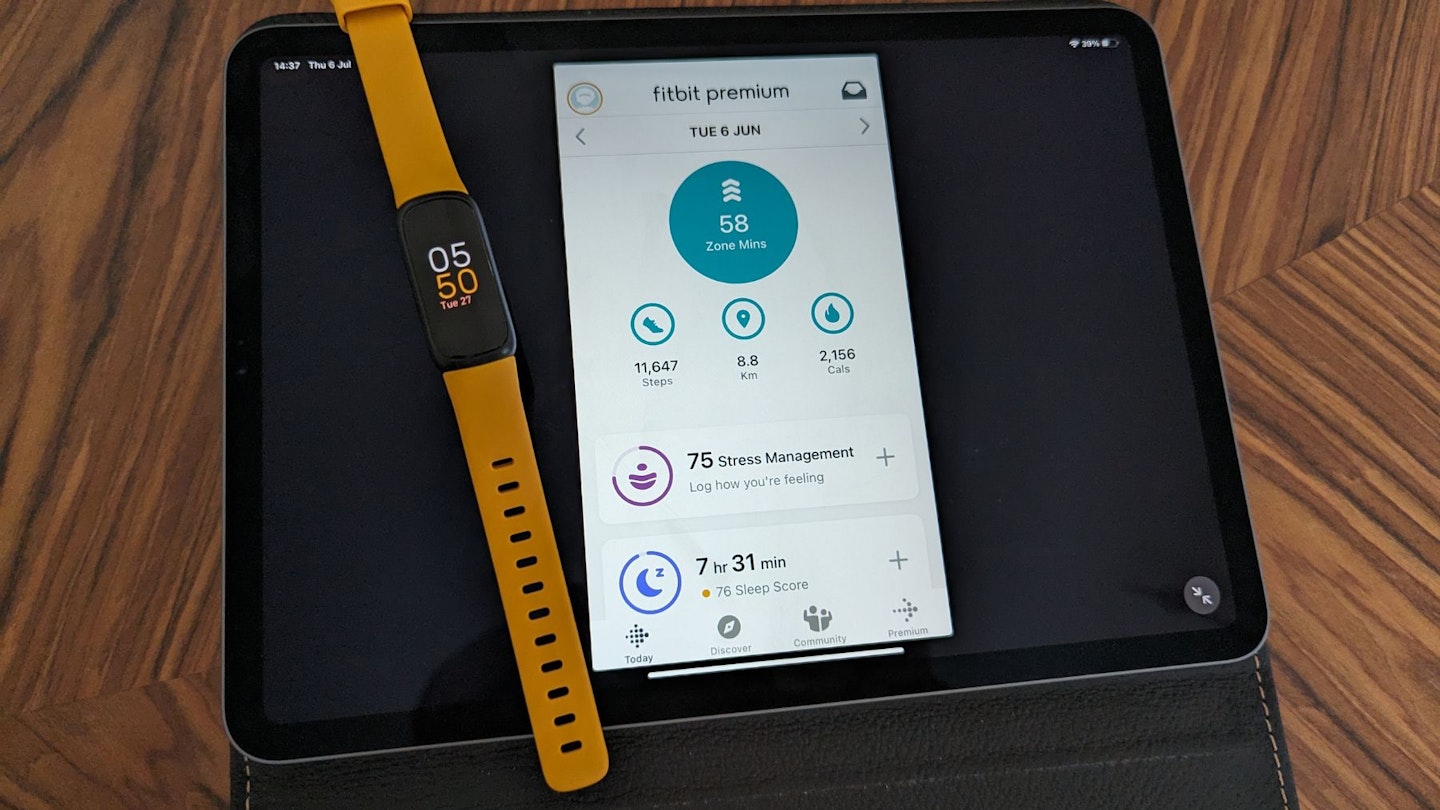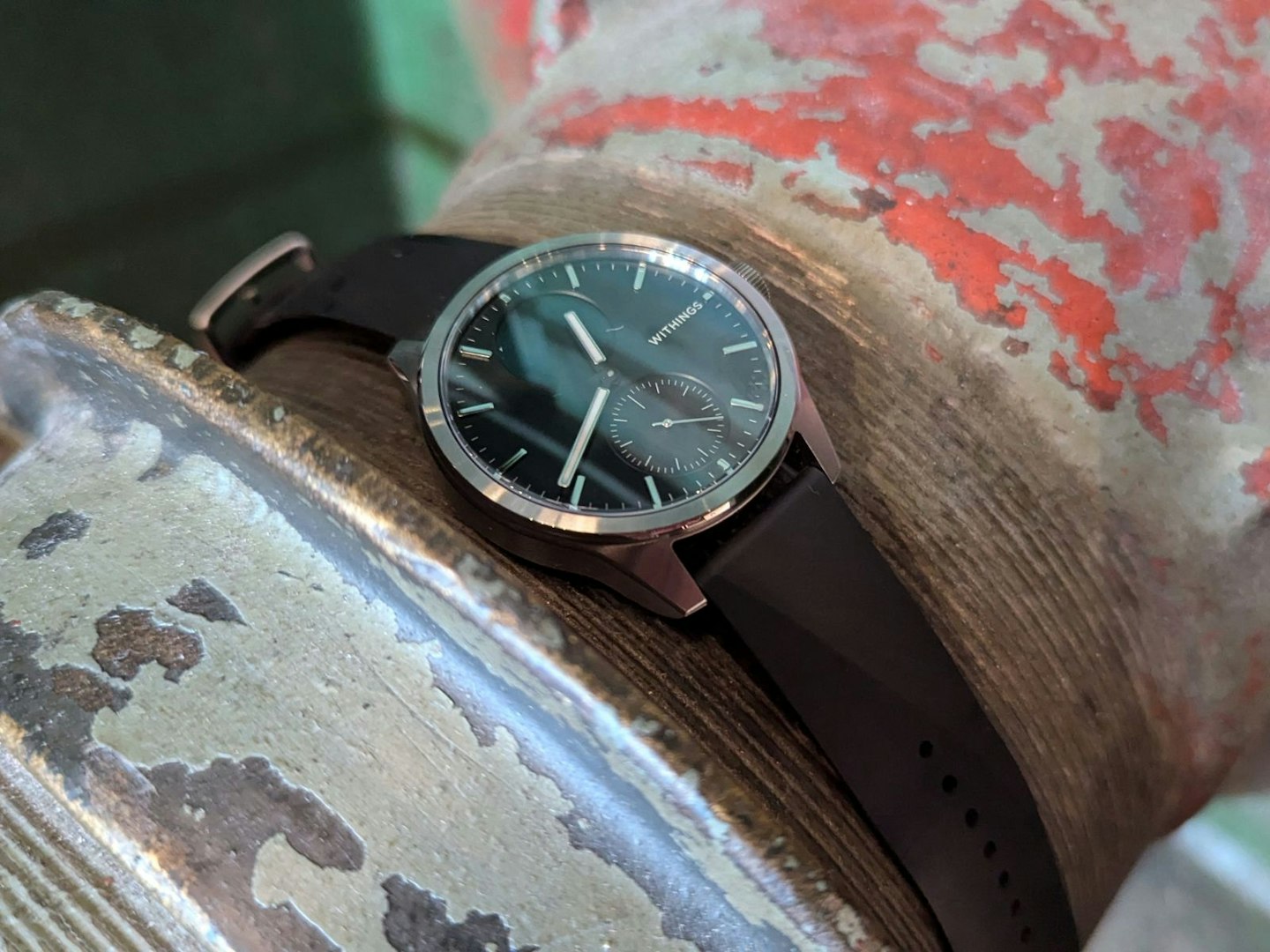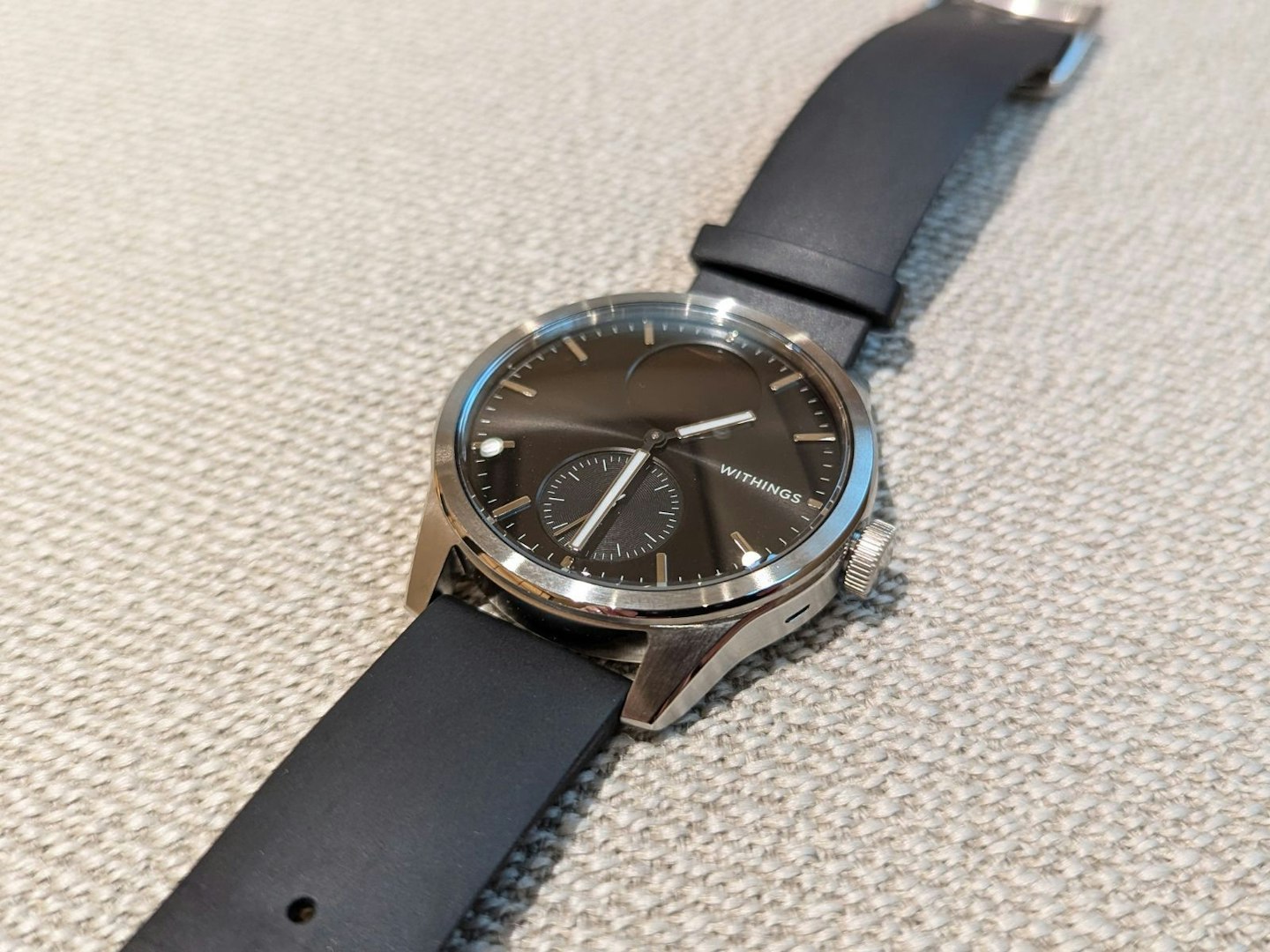When it comes to tracking exercise, you can keep things simple by picking up one of the best fitness trackers. At the most basic level, any decent fitness tracker will track your steps, your heart rate and approximate calories burned as you work up a sweat, and this could be all you need to keep your PBs and stats close at hand. But many of them can now do much, much more.
Wearable technology has improved over the years with more features, colours and styles on offer than ever. Your fitness tracker can always match your gym gear. But fashion aside, if your tracker gives you the basic data you need, you can't go far wrong. So, if you're the budget-conscious type who wants to monitor their performance, one of the best fitness trackers is your best option.
Buying a fitness tracker can give you the motivation to keep fit and get healthier. Having access to stats instantly on how your run went, how far you've walked, and how many calories you've burned can be an incentive to keep going when before, you might have given up.
Best fitness trackers of 2025 at a glance:
• Best overall: Fitbit Charge 6 – View on Amazon
• Best budget: Fitbit Inspire 3 – View on Amazon
• Best for serious athletes: Whoop Band 4.0 – View on Amazon
• Best under £50: Xiaomi Smart Band 8 – View on Amazon
During our fitness tracker reviews, we've found that most modern fitness trackers consistently offer extra features; like sleep tracking, oxygen level monitoring, menstrual health data, or even pulse oximeter readings as you'd expect to find on the best Fitbits, for example. If you're more focused on the activity you will be measuring, then consider in-built GPS if you prefer to walk or run so you can measure speed and distance accurately. If you need help deciding, we've covered fitness tracker features and FAQs at the end of the article.
Please note: All prices are correct at the time of writing. Prices, stock and deals are subject to change without notice.
Best fitness trackers of 2025
Fitbit's newest addition to its fitness tracker range earns top spot thanks to its impressive array of metrics and sensors that make it one of the most advanced and accurate options currently on the market. It has an upgraded PPG sensor that's also used on the Google Pixel Watch 2. According to Google, the new sensor is up to 40 per cent better at tracking your heart rate.
The Charge 6 can also track 40 different activity types, as well as the usual steps, calories, sleep, blood oxygen, and can even provide an ECG reading. There are a few smart features thrown in for good measure, including Google Maps, Google Wallet, and controls for YouTube music. Built-in GPS also makes outdoor runs and bike rides easy to track accurately.
It isn't a full smartwatch, so you can't take calls or use a voice assistant. But with its RRP of £139.99, it's significantly cheaper than the best smartwatches for health tracking. We've even seen it on sale for under £105, which makes it an absolute bargain. It's the best all-round fitness tracker out there.
Digital Writer Jack Barrell has hands on experience with the Fitbit Charge 6. Here's how he got on with it: "Very rarely have I been so consistently delighted with a piece of smart tech as I have with the Charge 6 Fitbit. It's a wonderful fitness companion because of how dedicated it is to your personal growth and progress. What also goes a long way is just how gratifying and engaging the Charge 6 is. Productive notifications, graphics, and vibrations give you a pat on the back or a nudge of encouragement to make the most out of your days.
It's not short of high-end fitness tracker features either, all of which work excellently too. Over 40 exercise modes is a real treat, heart rate monitoring is precise, and sleep tracking can really offer some food for thought. At this price, you're getting heaps for your cash."
Pros
- Lots of health and fitness tracking features
- Can connect with compatible exercise equipment
- Very intuitive and engaging to use
- Over 40 preset exercise modes feels limitless
Cons
- Display customisation is somewhat limited
- Battery life closer to 5 days under realistic daily use (as opposed to 7)
| Display | 1.04-inches |
| Battery life | Up to 7 days |
| Connections | Bluetooth and built-in GPS |
| Compatibility | iOS and android |
| Dimensions | 36.73 x 23.09 x 11.20 mm |
| Weight | 38 grams |
If you're looking for an affordable Fitbit, the Fitbit Inspire 3 is the one to go for. It's one of Fitbit's smallest and lightest fitness trackers, making it perfect if you want something discreet. It offers users a full set of fitness tracking features, including heart rate and sleep tracking, step and calorie counting, and blood oxygen monitoring. You also benefit from access to Fitbit Premium and all the extra features offered there - if you pay for a subscription.
It's been around for a while, so it isn't the most advanced or comprehensive option available. But it has a relatively strong 10-day battery life, thanks to the small screen, and the absence of built-in GPS. And while the RRP is £84.99, we've regularly seen it discounted to less than £65, bringing it into range of much cheaper – and often less accurate – fitness trackers.
Pros
- Excellent battery life
- Lightweight and comfortable
- Simple to use
Cons
- Small display can be fiddly to use
| Display: | 1.4-inch |
| Battery life | 10 days |
| Connections | Bluetooth, connected GPS |
| Compatibility | iOS and Android |
| Dimensions | 39.32 x 18.6x 11.75 mm |
| Weight | 20 grams |
Best for serious athletes
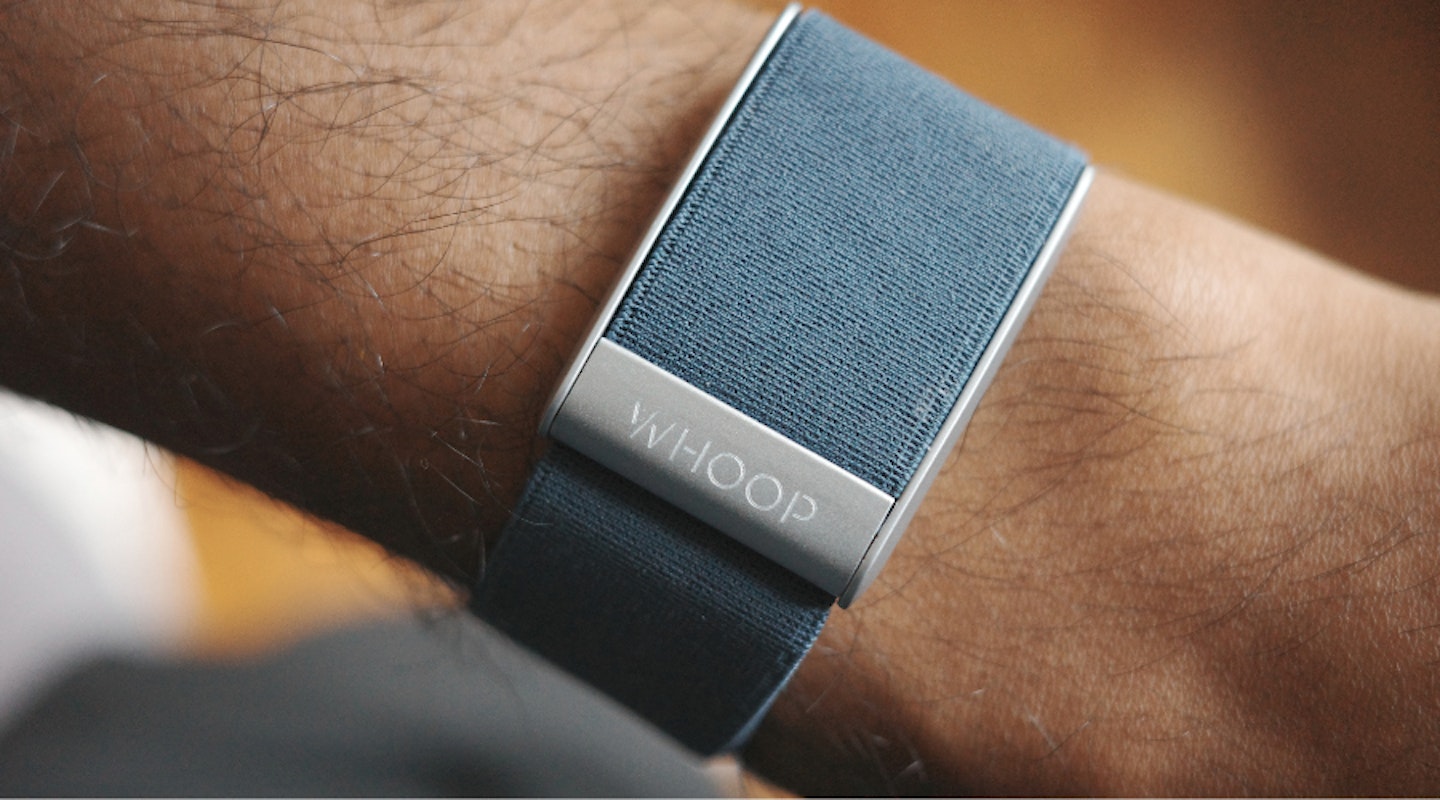 What's The Best / Curtis Moldrich
What's The Best / Curtis MoldrichIf you're a serious fitness junkie who wants to wear what the pros wear, then the Whoop Band 4.0 is the fitness tracker for you. Worn by many professional sportspeople, the Whoop Band tracks sleep, strain, recovery and stress. It also has sensors for heart rate, blood oxygen, skin temperature, and can be integrated with smart scales to track your body composition as well. There's even an AI-powered coach feature, which identifies patterns in your data to recommend workouts for you.
It's an impressive bit of kit, and the absence of a display helps to extend battery life to around five days. The wireless charger pack attaches to the band while you're wearing it, allowing you to track your data constantly.
The Whoop Band doesn't track some obvious metrics, such as step count. It prefers to take a more holistic approach, hence the focus on strain and recovery. If you're looking for a basic fitness tracker, this isn't it. And it also comes at a hefty price – £229 for a 12-month subscription, £384 for a 24-month subscription, or £27 a month if you pay monthly. The band itself is – in theory – free, but it won't work if you don't pay for the subscription. There is a 30-day trial to let you test it out, however. This really is a fitness tracker for the most dedicated sportspeople.
Curtis Moldrich tried WHOOP for 70 days. Here's a summary of his experience: "It's clear that WHOOP is for anyone looking to monitor multiple aspects of their health and fitness and make informed exercise and well-being decisions. Its use of data is extensive and sometimes overwhelming, but I have learned so much about my body during testing that I can't imagine exercising without it now. Plus, there's the added intrigue of continuous app updates and integrations, supporting, improving and diversifying the experience."
"I think those looking for the basics will want to look for a more traditional fitness tracker, but if the sound of pages of bodily insight does it for you, then you can't really get better than WHOOP."
Pros
- Subtle looks and discreet for a fitness tracker
- Constant updates to the app
- Links well to other health and fitness devices
Cons
- App may be overwhelming or too pushy for some
- Others may prefer the low profile of a smart ring
| Display | <meta charset="utf-8"></meta>None |
| Battery life | <meta charset="utf-8"></meta>Up to 5 days |
| Connections | Bluetooth |
| Compatibility | iOS and Android |
| Dimensions | 43 x 28 x 10 mm |
| Weight | 130 grams |
Best under £50
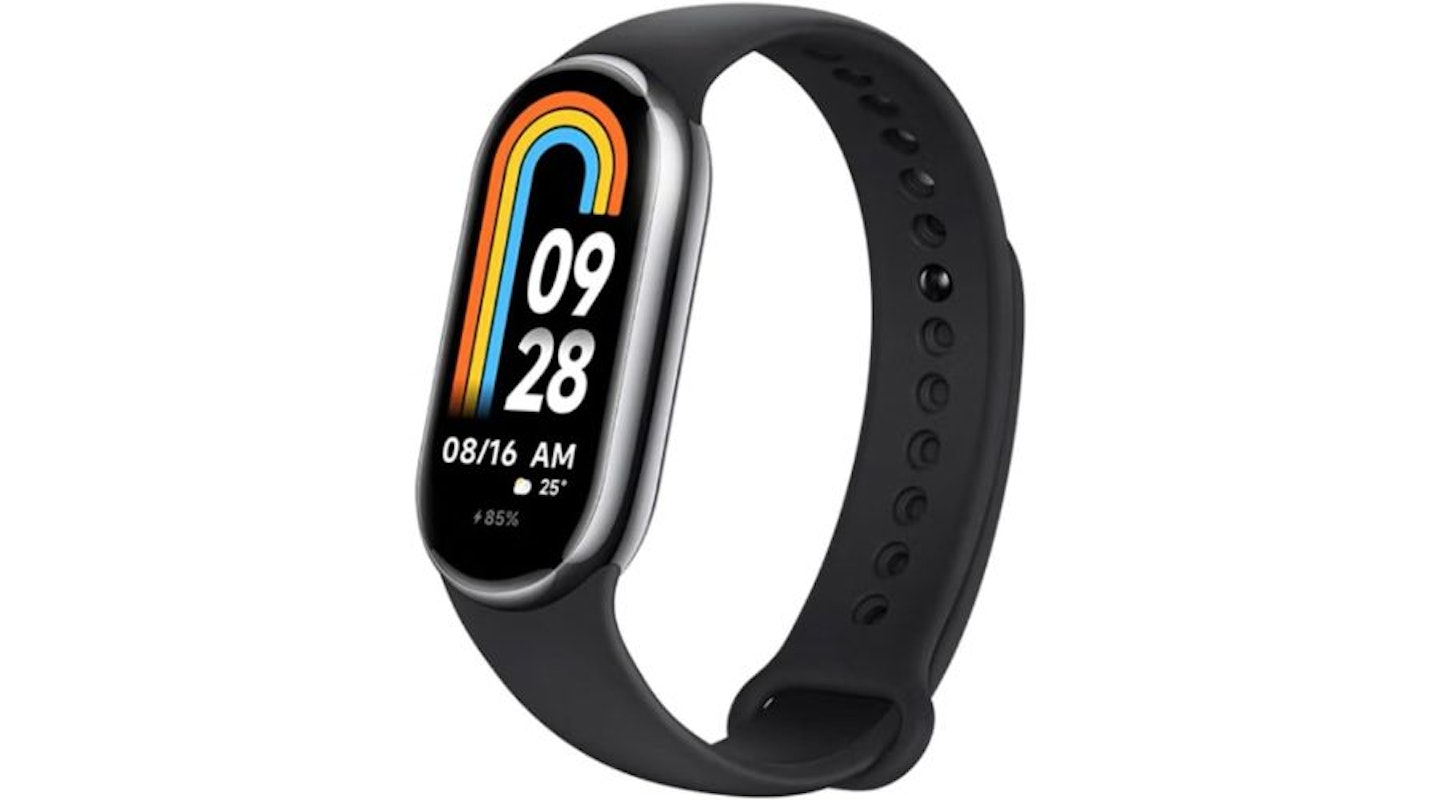 Xiaomi
XiaomiThe best fitness trackers under £50 all have plenty to offer, but our pick is the Xiaomi Smart Band 8, thanks to its excellent display, full feature set, and bargain price tag. It holds its own against many more expensive competitors, which makes it a great choice if you just want to dip your toe in the fitness tracker water without spending a lot.
Features include step counting, calorie estimates, heart rate and sleep tracking, as well as calculating your training load and estimating your recovery time. There's even Pebble Mode, which allows you to attach the Smart Band 8 to your shoe via an attachment (sold separately) and use it as a running pod. This can then measure running specific metrics such as stride frequency, stride length, and impact force.
It's a comprehensive offering, and with an RRP of just £34.99, it's one of the cheapest models around. It's potentially not as accurate as some more expensive models, but those will cost more.
Pros
- Extremely good value for money
- Pebble Mode is an excellent feature for runners
- Impressive battery life
Cons
- No built-in GPS
- Some questionable accuracy
| Display | 1.62-inch AMOLED |
| Battery life | Up to 16 days |
| Connections | Bluetooth, Connected GPS |
| Compatibility | iOS and Android |
| Dimensions | 48 x 22.5 x 10.99 mm |
| Weight | 27 grams |
A hybrid smartwatch is, in many ways, much more like a fitness tracker than a smartwatch. The ScanWatch 2 is Withings' flagship timepiece and is ideal for anyone who wants a stylish device that looks like a traditional watch, while still being able to track some health and fitness metrics. This is a beautiful watch, that won't look out of place no matter the occasion.
It offers plenty of metrics, including – uniquely – 24/7 temperature tracking (most devices only do this at night, if at all). There's also heart rate, sleep, calories, blood oxygen and activity tracking, making this a fully stocked fitness tracker. The Withings app is very good, offering plenty of support and insights to help you interpret your data. The OLED display isn't overly intrusive, and while it is small, you can use it to read notifications and check data on your wrist.
It is pricey compared to other fitness trackers, with an RRP of £319.95. But Withings is offering something that very few competitors have, and if style matters, you could do a lot worse than the ScanWatch 2.
Senior Tech Writer and Reviewer Steven Shaw reviewed the ScanWatch 2 for us. He wrote: " I would describe the ScanWatch 2 as a health monitoring device that also does fitness tracking. It's not as comprehensive as the best Garmin watches, for example. Those offer far more training and performance metrics than this. But, if you want some general fitness tracking, and some advanced health metrics, this watch will likely appeal."
"It's also a great choice for design-led consumers who are interested primarily in a stylish timepiece but want some of that health and fitness functionality in addition."
"The Withings ScanWatch 2 isn't a watch for everyone – and it doesn't try to be. Instead, it's a shamelessly health-focused device that looks great, and for the right customer, offers almost everything they could need."
Pros
- Beautiful classic watch design
- All day temperature tracking is unique
- Excellent 30-day battery life
Cons
- Small screen isn't great for reading notifications
- No built-in GPS
| Display | 0.63-inch Grayscale OLED display, 282 PPI |
| Battery life | Up to 30 days |
| Connections | Bluetooth, connected GPS |
| Compatibility | iOS and Android |
| Dimensions | 38mm or 42mm |
| Weight | 34.6 grams (38mm version), 52.6 grams (42mm version) |
Best fitness tracker ring
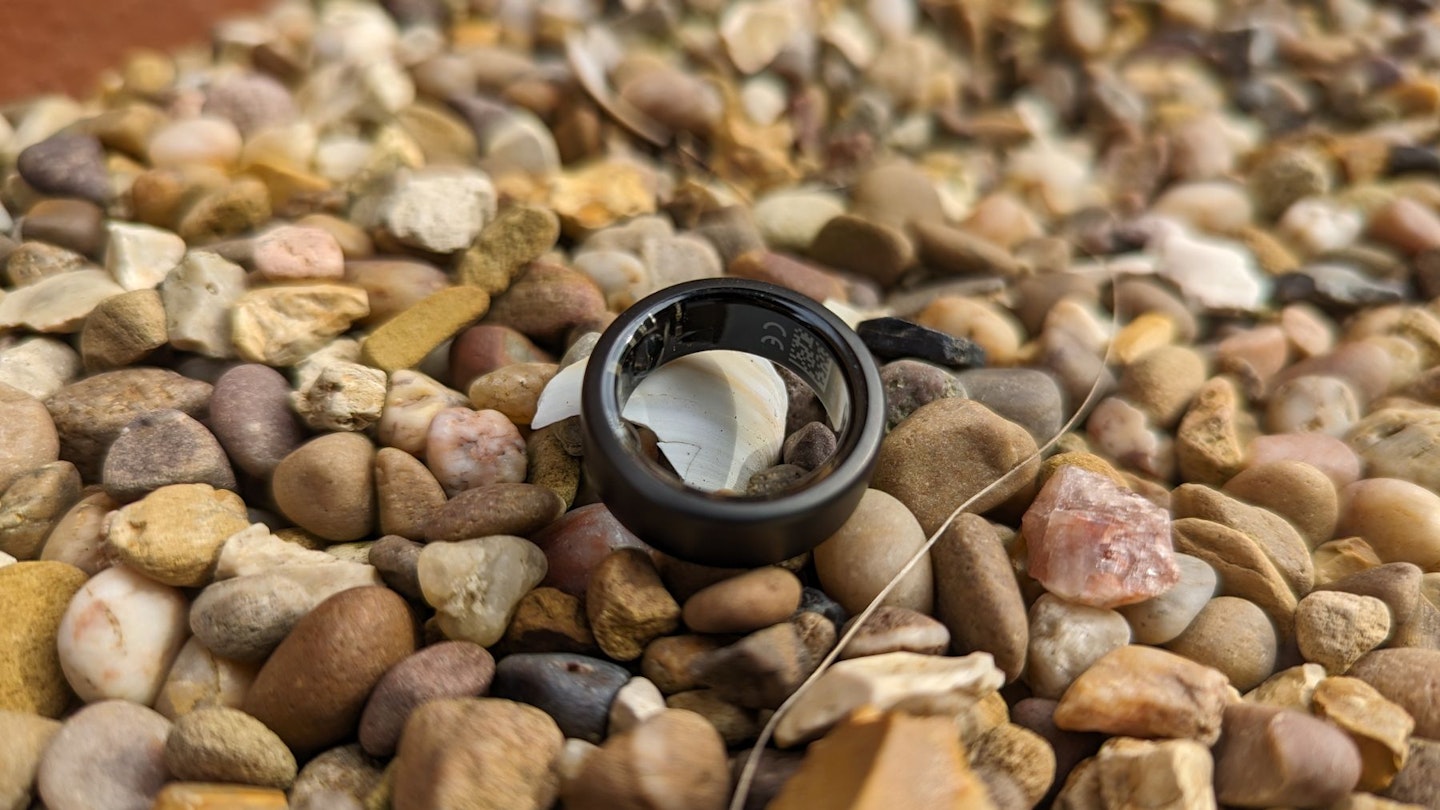 What's The Best/Steven Shaw
What's The Best/Steven ShawThe best smart rings are growing in popularity, and with good reason. They offer a subtle way to track your health and activity, and don't come with a screen that can distract you as you go about your day. Our current favourite is the Oura Ring, which offers a sleek design in a variety of styles and colours. But it's more than just a piece of jewellery.
Three sensors track heart rate, breathing, temperature, stress and blood oxygen. The ring can also monitor sleep, provide information about your menstrual cycle, and estimate your calorie burn. All that data can help the Oura Ring spot when you may be about to fall ill, for example, or tell you when your body needs rest, or is ready for exercise.
It's another device at the more expensive end of the spectrum – prices start from £249, with a monthly £5.99 subscription to access all the data. Otherwise, you'll be restricted to a few limited insights. For those willing to pay a premium for a ring, there's a lot to like. It's accurate, consistent, and looks great.
Pros
- Highly accurate
- Lightweight
- Water-resistant
Cons
- Slightly bulky
- Subscription required to access all metrics
| Display | N/A |
| Battery life | 7 days |
| Connections | Bluetooth |
| Compatibility | iOS and Android |
| Dimensions | 7.9 mm |
| Weight | 4-6 grams |
Best Garmin fitness tracker
The best Garmin watches are some of our favourite pieces of fitness tech, and the Garmin Vivosmart 5 is its best fitness tracker. As a "true" fitness tracker, rather than a watch, it's significantly smaller, slimmer, and lighter than most Garmin devices. But it packs plenty of metrics into that small chassis – heart rate, steps, calories, sleep, blood oxygen, stress and activity tracking are all available. Data is presented clearly in the excellent Garmin Connect app. The only thing we'd really have liked to see included is built-in GPS, to improve accuracy when tracking outdoor activities.
The monochrome AMOLED display isn't the prettiest, but it is clear and easy to read. Battery life is also respectable, lasting up to seven days (although five is more typical depending on how you use it). It's a solid all-rounder, offering comprehensive fitness tracking at an affordable price. Its RRP is £129.99, but it's often on sale for less. And unlike Fitbit, there's no subscription for accessing any of your metrics.
Pros
- Lightweight and unobtrusive tracker
- Decent battery life - 7 days+ when tracking sleep too
- Very accurate measurements
- Brilliant integrations with popular apps
Cons
- Not a watch replacement
- Watch strap is part of the tracker
| Display | 6.6 x 17.7mm OLED |
| Battery life | Small/medium: 15 x 10.5 x 197mm, Large: 15 x 10.5 x 223mm |
| Connections | up Bluetooth, connected GPS |
| Compatibility | iOS and Android |
| Dimensions | 19.5 x 10.7 x 217 mm (small strap), 19.5 x 10.7 x 255 mm (large strap) |
| Weight | 24.5 grams (small), 26.5 grams (large) |
Best for GPS tracking
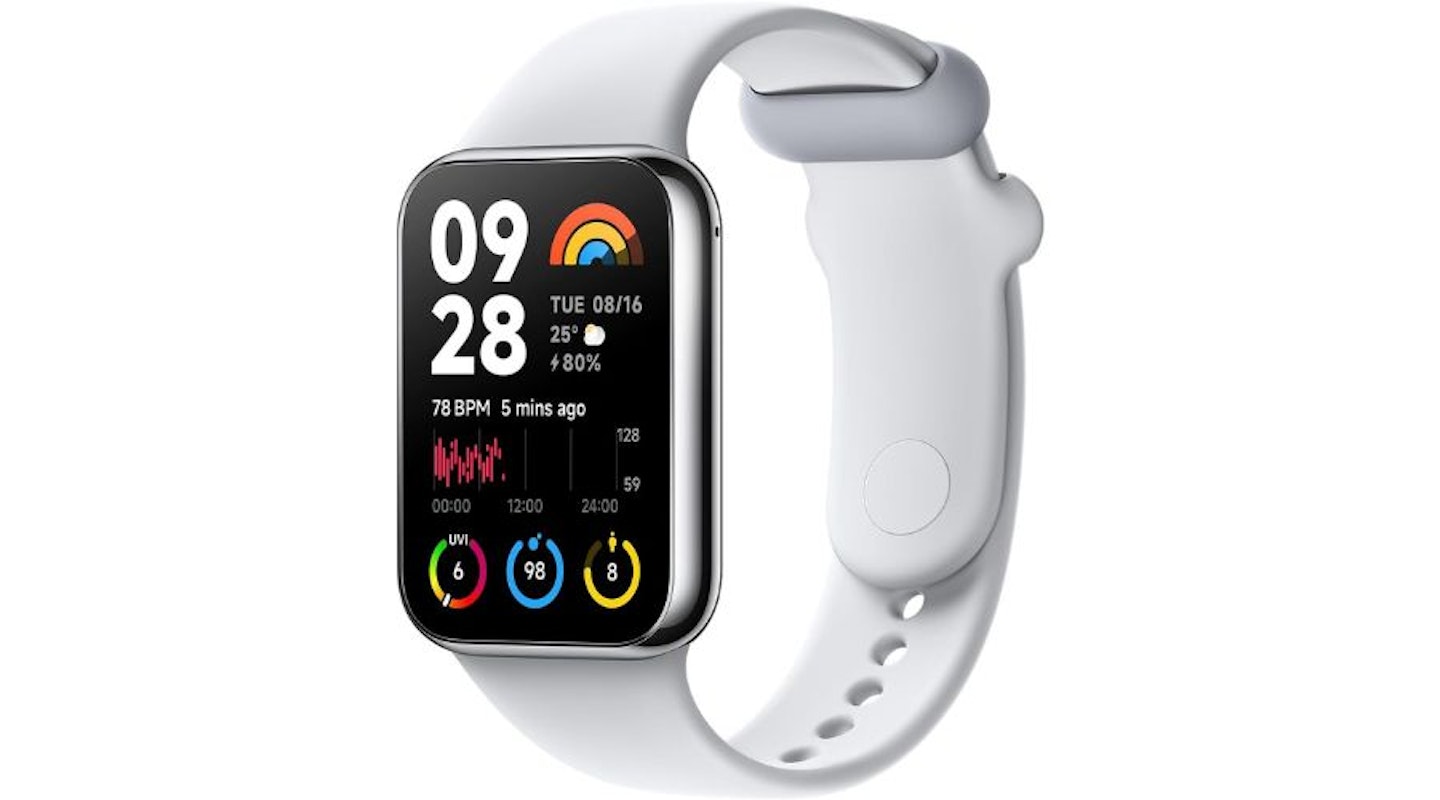 Xiaomi
XiaomiXiaomi's Smart Band 8 Pro is one of the best fitness trackers under £100, and a big reason for that is its built-in GPS, which makes it far easier to accurately track any outdoor runs, walks and bike rides. Unlike most fitness trackers – even more expensive models - with this device, you won't need to take your phone with you. And that makes this one of the best fitness trackers for GPS tracking.
There's the usual set of metrics on offer – heart rate, blood oxygen, sleep, step counts and estimated calorie burn. There are also a few advanced training metrics such as VO2 Max score, training effect, recovery time, and for runners, you can track your cadence and stride length.
The RRP of £60 makes this exceptionally affordable given everything it offers. We've seen it on offer for as little as £50, making this outstanding value.
Pros
- Built-in GPS for accurate location tracking
- Superb screen
- Excellent battery life
Cons
- The Mi Fitness app isn't the best
| Display | 1.74-inch, AMOLED |
| Battery life | 7 days |
| Connections | Bluetooth, built-in GPS |
| Compatibility | iOS and Android |
| Dimensions | 22.5 grams (without strap) |
| Weight | 46 x 33.35 x 9.99 mm |
9.
Fitbit Ace 3
Best for kids
Our pick for the best fitness tracker for kids is the Fitbit Ace 3, which provides all the key metrics for children to track their activity levels, without being as sophisticated as some models. The Ace 3 offers step counting, sleep tracking, and time being active, as well as reminders to get moving if they've been sitting still for too long. Activity is rewarded by new clock faces and avatars, giving kids an incentive to get outside and touch grass.
One of the advantages of the Ace 3 is that it's suitable for kids as young as six, but the relatively understated design means it should be good for a few years at least. Parents can also keep an eye on their children's data via the Fitbit app. As we mentioned above, it doesn't offer as many health and fitness tracking features as other Fitbits. But many parents may feel that they don't want their children counting calories, checking their heart rate, and other metrics.
Price wise, it's relatively cheap. The RRP is £69.99, but it's often on sale for less than £50, making it very affordable.
Pros
- Waterproof design means it's fine to go swimming
- Silicone strap is comfortable, durable, and protects the screen
Cons
- No GPS
| Display | 0.72-inch, PMOLED |
| Battery life | Up to 8 days |
| Connections | Bluetooth |
| Compatibility | iOS and Android |
| Dimensions | 37.39 x 16.8 x 12.9 mm |
| Weight | 20 grams |
Buying guide: the best fitness trackers
If you aren't sure what you're looking for, here are a few of the key features to look for in a fitness tracker:
GPS: Not many fitness trackers come with built-in GPS. It's a real bonus point if they do. Some can offer GPS tracking via smartphone connectivity as an alternative.
App connectivity: Fitness trackers have their own-brand apps, but you'll also want to check if you can also integrate other fitness apps too, such as Strava.
Battery life: The longer, the better, naturally. When brands give an average battery life figure, it pays to check what the criteria are because it's often a very optimistic result.
Waterproofing: The standard waterproofing for fitness trackers is water resistant down to 50 metres (5ATM). But some vary, so it's a feature to check.
Screen size: There's a balance to be had here. Bigger screens offer better ease of use, but too big and the fitness tracker becomes bulky. This is a subjective thing because peoples' wrists are different sizes.
Toughness: This largely relates to the materials used. For example, a silicone strap offers better flexibility and, therefore, durability and longevity than a TPU one.
FAQ: the best fitness trackers
What does a fitness tracker do?
Fitness trackers, also known as fitness tracker bracelets, are a device that primarily tracks your activity. That could be steps from a walk or run, distance, swim lengths, a HIIT workout or yoga. It looks at your heart rate, calculates the calories burned, and reports back data for you to monitor your health and fitness levels.
Many trackers also offer additional features like sleep monitoring, oxygen levels and even stress rate. All of these factors are worth knowing. Especially if you're looking to make changes to your lifestyle or help inform your doctor of any noticeable changes. However, remember that data may not be accurate if you don't input your height, weight, and age data, for example.
What's the most accurate fitness tracker?
As always, this is down to what you want to monitor on your own fitness journey. Some trackers are more accurate than others when it comes to heart rate, for instance. That said, if we had to give an award for 'Best fitness tracker 2024', it would probably be the Fitbit Charge 6 in terms of the broadest range of reliable tracking functions.
What is the difference between fitness trackers and a smartwatch?
A smartwatch tends to offer the fitness tracker features mentioned above, plus more - but at a steeper price. If you need to answer phone calls, play music, or send messages, then perhaps an Apple smartwatch is for you. But, if you're new to devices like these and prefer to stay focused on fitness, we recommend a tracker as the simplest and most effective way of monitoring your progress.
Why should you trust us?
At What’s The Best, our mission is to provide accurate and reliable reviews, ensuring our readers receive honest and transparent information about the best technology products available. Anything less would undermine our commitment to being a trusted source of unbiased product information.
Our dedicated in-house writing team comprises experts with extensive experience and a genuine passion for technology. Collectively, we have spent decades testing and writing about tech, leveraging our expertise in all our articles, advice pieces and reviews.
We maintain complete editorial independence and do not accept payment for product reviews. Our writers have full control over their content, ensuring that products are selected based solely on the needs of our readers. While we may earn commissions or other compensation from links on our website, this never affects our product choices. These links enable us to continue offering valuable consumer advice, without compromising the integrity of our reviews.
Steven Shaw is a Senior Tech Writer and Reviewer for What's the Best. Steven writes how-to guides, explainers, reviews and best-of listicles covering a wide range of topics. He has several years of experience writing about fitness tech, mobile phones, and gaming.
When Steven isn't writing, he's probably testing a new smartwatch or fitness tracker, putting it through its paces with a variety of strength training, HIIT, or yoga. He also loves putting on a podcast and going for a long walk.
Subscribe to the What's The Best Newsletter to keep up to date with more of the latest reviews and recommendations from the What's The Best team.


